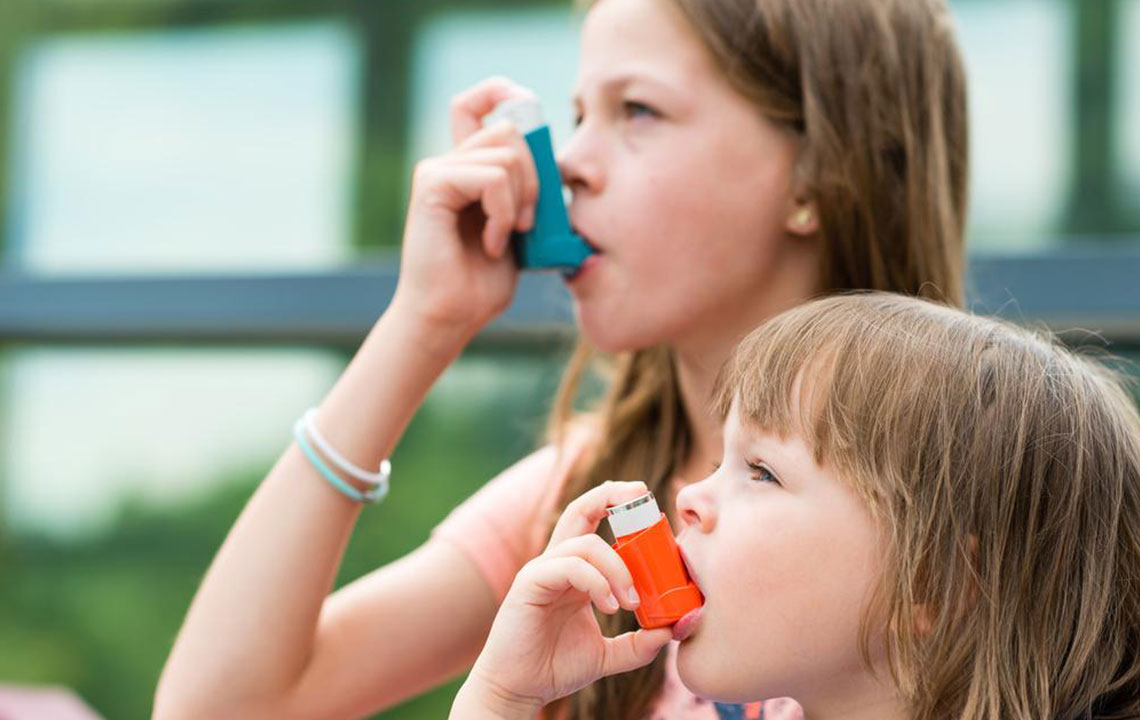Comprehensive Guide to Managing Allergy-Induced Coughs Effectively
This extensive guide offers proven strategies for effectively managing allergy-induced coughs through natural remedies, environmental controls, diet, and lifestyle changes. Identifying allergens and making targeted adjustments can significantly improve breathing comfort and reduce coughing episodes. The article emphasizes hydration, pollution avoidance, smoke-free environments, soothing herbal teas, and dietary modifications as key components of allergy management. Consult healthcare professionals for personalized treatment. Implementing these comprehensive measures can enhance your quality of life by minimizing allergy symptoms and supporting overall respiratory health.

Effective Strategies to Alleviate Coughs Caused by Allergies
Every year, as seasons change, countless individuals experience allergy symptoms that significantly disrupt their daily routines. One of the most common and uncomfortable symptoms is an ongoing cough triggered by various allergens. Whether it’s pollen during spring, pollution during winter, or household dust year-round, these allergens can provoke immune responses that lead to persistent coughing, sore throat, and breathing difficulties. Understanding how to manage and alleviate allergy-induced coughs is vital for maintaining quality of life and preventing complications.
Addressing allergy symptoms requires a comprehensive approach. While medical treatments such as antihistamines or corticosteroids may be necessary in severe cases, natural and lifestyle modifications can significantly reduce the frequency and severity of coughs caused by allergies. This article explores various practical, safe, and effective methods tailored to help allergy sufferers find relief and regain control over their health.
Identifying the Allergens: The First Step Towards Relief
Before implementing any remedial measures, it is essential to identify the specific allergens responsible for your symptoms. Consulting a healthcare professional or allergy specialist for proper testing can help pinpoint whether pollen, dust mites, pet dander, mold, or other environmental factors are triggering your cough. Once identified, you can employ targeted strategies to minimize exposure and manage symptoms more effectively.
Proper diagnosis also enables your doctor to recommend appropriate medication or immunotherapy if needed. However, alongside medication, lifestyle adjustments and natural remedies play a crucial role in symptom alleviation, especially during peak allergy seasons.
Hydration: The Foundation for Sinus and Throat Health
One of the simplest yet most effective strategies for managing allergy-related coughs is maintaining adequate hydration. During allergy flare-ups, excess mucus production is common, often leading to post-nasal drip, which in turn causes throat irritation and persistent coughing. Drinking generous amounts of fluids, particularly warm drinks like herbal teas, broths, or warm water with lemon, helps thin and loosen mucus, facilitating easier drainage from sinuses and reducing cough severity.
Staying well-hydrated also keeps the mucous membranes moist, which can prevent dryness and soreness in the throat—common complaints among allergy sufferers. Gargling with warm saltwater can provide additional relief by soothing irritated tissues and reducing inflammation. For optimal results, aim to drink at least 8–10 glasses of water daily, and adjust based on activity levels and environmental conditions.
Minimizing Exposure to Air Pollutants and Allergens
Air pollution, especially in urban environments, significantly worsens allergy symptoms and increases coughing frequency. Particulate matter, vehicular emissions, industrial pollutants, and other airborne irritants can inflame airways and exacerbate allergic responses. Therefore, reducing exposure during peak pollution times is vital.
On days with high smog levels or poor air quality forecasts, stay indoors as much as possible. Keep windows and doors closed to prevent outdoor allergens and pollutants from entering your home. Using high-efficiency particulate air (HEPA) filters in your living environment can effectively trap dust, pollen, and other airborne irritants.
When outdoor activity is necessary, consider wearing a protective face mask designed to filter pollutants and allergens. Additionally, scheduling outdoor exercises during times of lower pollution—such as early mornings—or choosing indoor gyms can help mitigate exposure. These precautions are especially important for individuals with asthma or severe allergies.
Protecting Respiratory Health by Avoiding Tobacco Smoke
Both active and passive smoking have detrimental effects on respiratory health, aggravating allergy symptoms and increasing coughing tendencies. Tobacco smoke contains numerous irritants that damage the lining of the respiratory tract, weaken immune defenses, and trigger inflammation. For allergy sufferers, smoking can intensify coughing, sore throat, and breathing difficulties.
Quitting smoking is one of the most beneficial steps you can take to improve your respiratory health. If quitting is challenging, seek support through cessation programs, counseling, or nicotine replacement therapies. Additionally, avoid environments where others are smoking or where secondhand smoke is prevalent. Creating a smoke-free home and workplace environment can dramatically reduce allergy symptoms and promote better airflow and lung function.
Harnessing the Power of Soothing Teas and Natural Remedies
Herbal teas have long been recognized for their calming and healing properties. Teas containing ingredients such as peppermint, ginger, chamomile, licorice root, or green tea can provide soothing effects on an irritated throat, reduce coughing frequency, and promote mucus clearance.
For instance, peppermint tea acts as a natural decongestant, helping to open nasal passages, while ginger has anti-inflammatory properties that can ease irritation. Chamomile offers gentle relief from sore throats and promotes relaxation, aiding in overall comfort during allergy episodes.
In addition to teas, steam inhalation with essential oils like eucalyptus or menthol can help loosen congestion and soothe inflamed airways. Combining these natural remedies with other measures enhances your ability to manage coughs effectively without relying solely on pharmaceuticals.
Dietary Strategies to Minimize Allergy Symptoms
What we eat profoundly influences our immune system and allergy responses. Certain foods, especially those that are spicy or sour, can stimulate histamine release, potentially worsening allergy symptoms and coughs. Foods containing vinegar, pickles, fermented products, and heavily spicy dishes might escalate mucus production and irritation.
Opting for a balanced diet rich in anti-inflammatory foods, such as fruits, vegetables, omega-3 fatty acids, and probiotics, can strengthen your immune defenses and reduce susceptibility to allergens. Moreover, staying away from known food triggers during allergy seasons can prevent symptom escalation.
Hydrating with electrolyte-rich drinks and consuming warm, non-irritating foods can support mucus membrane health and overall comfort. Consulting with a nutritionist or allergist can help tailor a diet plan suited to your specific allergy triggers and health needs.
While these natural and lifestyle approaches can provide quick relief and improve comfort, it’s crucial to remember that they do not cure allergies. For persistent or severe symptoms, professional medical evaluation and tailored treatment plans are essential. Proper management can help you enjoy your daily activities without the constant burden of allergy-induced coughs.





